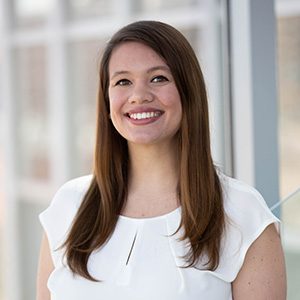Ann Obermann, Ph.D., LCSW, associate professor and Social Work online-education coordinator, was recently elected as the Metropolitan State University of Denver faculty trustee for a one-year term.
Obermann will serve as a nonvoting advisory member of the Board of Trustees and a voting member of the Faculty Senate. She will also attend all Faculty Senate and Faculty Senate Executive Committee meetings and sit on the Faculty Handbook Committee.
“I am excited to welcome Ann Obermann to her new role as faculty trustee and as a member of the Faculty Leadership Team,” said Liz Goodnick, Ph.D., Faculty Senate president. “Ann has been a fantastic leader in the Faculty Senate as chair of the Health Academic Subdivision, and I’m confident that she will do an outstanding job listening to faculty concerns, ideas and questions; communicating between the faculty and the board; and advocating for the faculty at Board of Trustees meetings. I’m very much looking forward to working with her in her new role.”
Obermann, who has worked in the Department of Social Work since 2015, spoke with the Early Bird about her interest in the role, goals and more.
EB: Why were you drawn to the faculty-trustee role?
Obermann: I was drawn to the role because of the important decisions being made to support students and impact MSU Denver’s future. MSU Denver is an essential asset to change and progress in Denver and Colorado as a whole. Working with faculty and University leaders to create an environment that nurtures tomorrow’s thinkers, leaders and change agents is inspiring. I see firsthand the impact that faculty members have on students, and students on faculty, and want to make sure that we do all we can as a University to support faculty and then get out of the way to let the magic happen. I am passionate about working with others to address some of the barriers to an impactful education that show up in today’s political context and in a big university system. In this role, I hope to collaborate with faculty, leadership, staff and students in building pathways to success for all, including faculty and students alike.
EB: What are your goals for your term?
Obermann:
- Support, and hold accountable, MSU Denver’s commitment to the practice of shared governance.
- Advocate for faculty welfare and uplift faculty voice in important University conversations and decision-making.
- Transparently and frequently communicate Board of Trustees actions and decisions to the larger faculty.
- Listen deeply and ask difficult questions.
- Consider equity and inclusion, including my positionality, in my relationships, communications and decisions.
EB: What most excites you about this opportunity?
Obermann: I am most excited to meet faculty members and hear what drives them in the classroom and the community, in their research and beyond. To understand what they need to create, teach, advocate and connect with students. And then to share these stories with the trustees and executive leadership.
EB: What important lessons or skills have you learned as an educator that will serve you well in this leadership role?
Obermann: Discomfort is a sweet spot for learning, even if it is really challenging in the moment. When asking students to get out of their comfort zone, to try something new, or to explore a different worldview, there is often discomfort. However, when students allow themselves this temporary discomfort, amazing learning opportunities follow.
Faculty Workload 2023, unexpected budget decisions, declining enrollment numbers and waning commitment to shared governance are just some of the uncomfortable conversations we had last year. I hope we can lean into these conversations, stay present in the discomfort, learn and move to create change.
My students continually teach and remind me how important it is to keep a learner’s mindset (or as they say, “Don’t you remember being a student?”). Staying open to differing views, new ideas and innovative solutions requires a learner’s mindset and will be essential for success in this role.
It is often the quiet student who has the most to say. I don’t know if this happens to others, but I am regularly surprised (even though it happens often) when I get that paper that blows my socks off from a quiet student. This lesson will remind me to slow down and listen, to seek out faculty members who are quiet, who are silenced, who are busy, who attend meetings online with their camera off and who are making an impact in our students’ lives.
EB: How can faculty members stay updated with your progress?
Obermann: I look forward to sharing what I learn as an advisory member on the Board of Trustees and the progress with what I am tasked with as the representative of our MSU Denver faculty. I will be sharing faculty voice in the faculty-trustee reports and relevant conversations given at every board meeting, either in print or verbally reporting out. Board updates to faculty will be given in biweekly trustee updates at Faculty Senate Executive Council meetings and in full Faculty Senate meetings as requested by the Senate president and Executive Council.
In addition to these more formal communications, please reach out — I want to hear from you. My door is open, Central Classroom 201, or use Teams chat or email me.
EB: What else is important for Roadrunners to know about you?
Obermann: I was a practicing social worker for 20 years in the Denver metro community before pursuing, and while obtaining, my Ph.D. I worked with unhoused youth, youth at risk for commitment and foster families and in community mental health. These experiences taught me about the amazing strength and resilience of individuals and communities, something that has been reinforced teaching and learning here with our MSU Denver community.
EB: Would you like to share any other fun facts or information with readers?
Obermann: I love playing music, collecting rocks and last names starting with the letter “O” and don’t appreciate puzzles or escape rooms.


